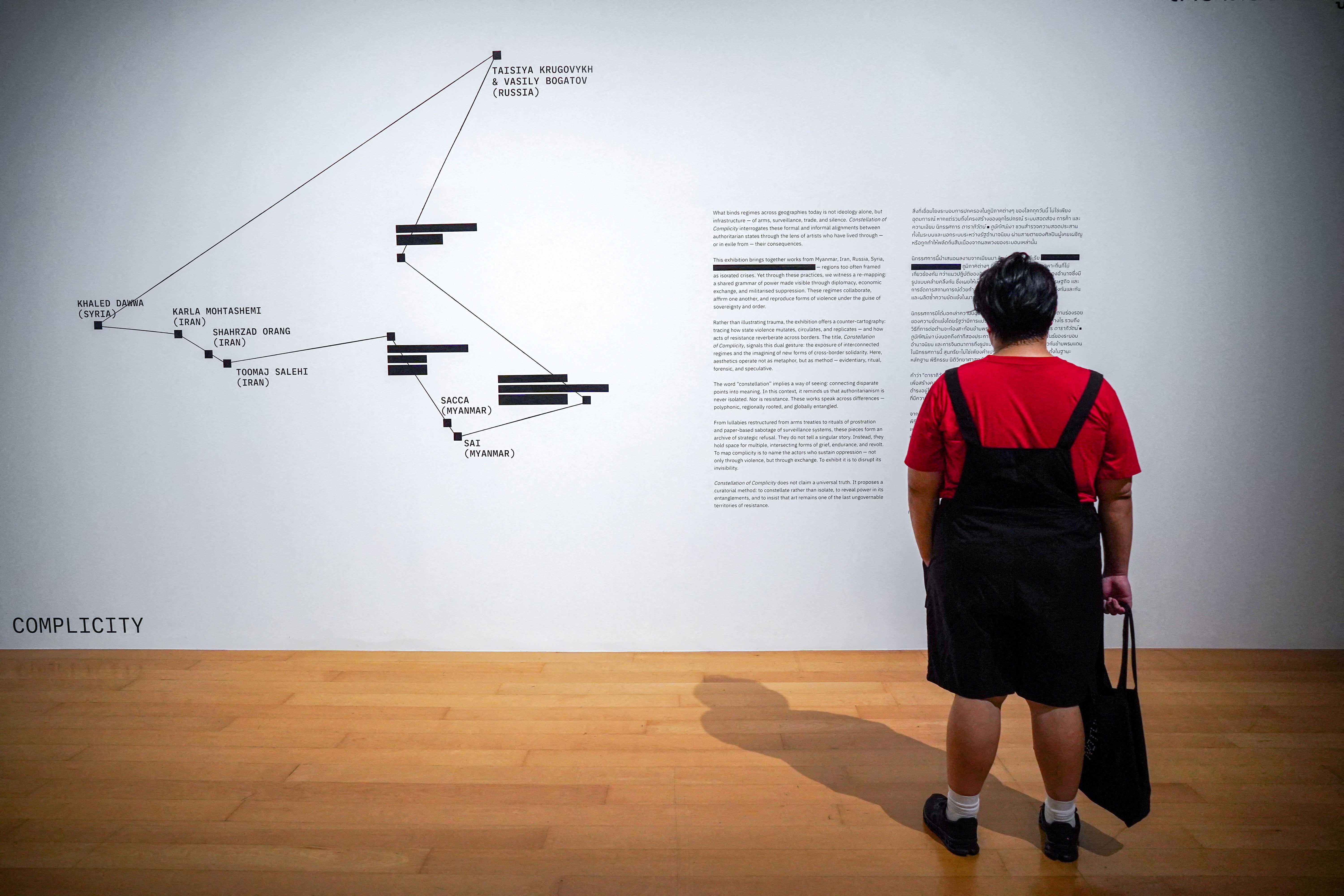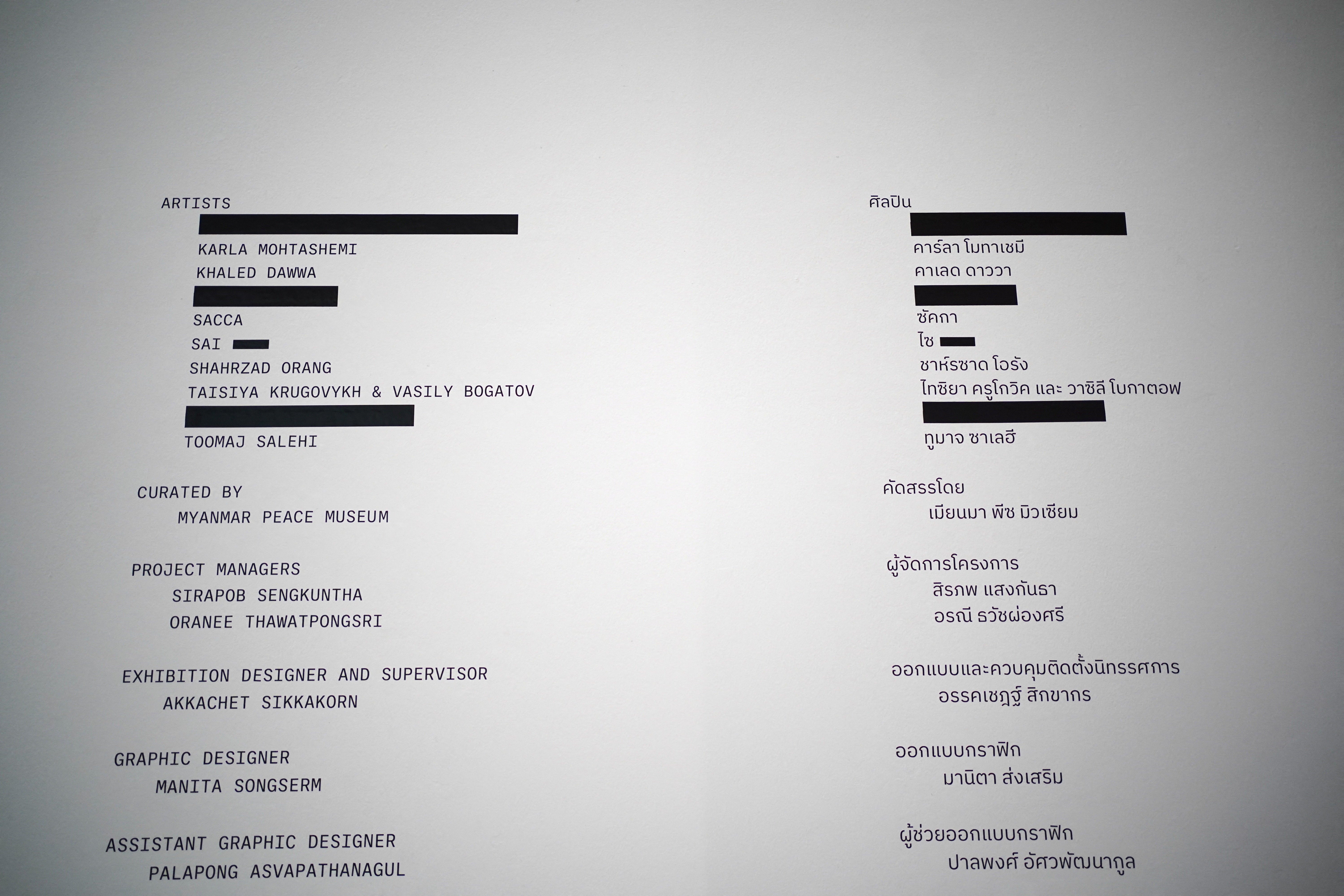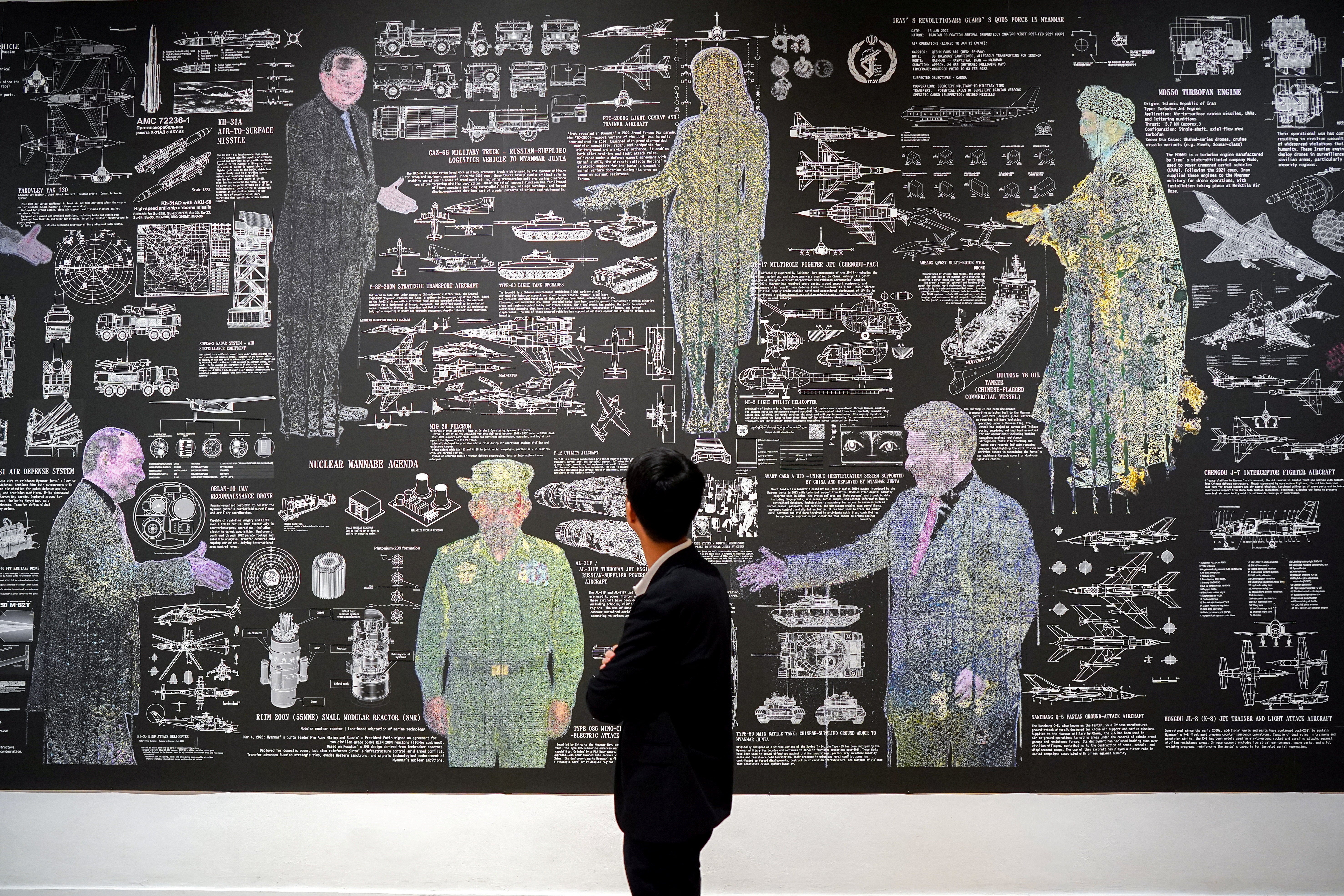An artist forced to flee to the UK from Thailand after his exhibition on authoritarian regimes was censored has said he does “not feel safe at all”.
Sai, who is Burmese, said pieces in his Bangkok show by Tibetan, Uyghur and Hong Kong artists were removed and names of the artists obscured following an alleged pressure campaign by Beijing.
Constellation of Complicity: Visualising the Global Machinery of Authoritarian Solidarity, opened on 24 July at the Bangkok Art and Culture Centre (BACC), with the aim of exposing the repression tactics used by authoritarian governments. However, just three days later Chinese embassy staff are claimed to have visited the BACC, accompanied by Bangkok city officials, and demanded the exhibition be shut down.

Sai has now opened up about the ordeal after he and his co-curator wife fled, fearing arrest or deportation to Myanmar, where he believed he would be punished by the military-run junta for his activism.
“My wife was really trembling,” Sai, who did not want to share his full name for safety reasons, told The Independent. “We tried to buy the earliest flight possible, [thinking], we don’t know what this is, or the magnitude, but we’ll try to get out of the country for now and solve this while we’re outside.”
The couple left on a plane bound for the UK, taking off just before midnight on 26 July.
“On the way to our hosts [in the UK] we get phone messages that three diplomats from the Chinese embassy along with Bangkok metropolitan administration officials had shown up at the Bangkok art and culture centre,” Sai said. “The Chinese diplomats were demanding that the exhibition be shut down. BACC had a discussion with them.
“After the discussion I was informed that the Chinese embassy demanded to remove the names of artists from Tibet, Hong Kong and the Uyghur region. The Chinese diplomats said the relationship between China and Thailand would be affected if BACC didnt comply.”

Works by Hong Kong artists Clara Cheung and Gum Cheng Yee Man, Tibetan artist Tenzin Mingyur Paldron, and Uyghur artist Mukaddas Mijit had been flagged as “problematic”, Sai explained. The artist was told Chinese diplomats returned on multiple occasions allegedly making more demands, including the removal of elements critical of Beijing’s policies.
In a statement issued following the censorship, the Chinese foreign ministry neither confirmed nor denied that its embassy was behind the alterations.
However they claimed the exhibition distorted Chinese policies and “undermined China’s core interests and political dignity”.
“The fact that the relevant country took timely measures precisely shows that the promotion of the fallacies of ‘Tibetan independence’, ‘East Turkestan Islamic Movement’ and ‘Hong Kong independence’ has no market internationally and is unpopular,” a spokesperson said.
Sai described the incident as an “unprecedented act of transnational repression”, which highlighted the concerning “magnitude” of China’s reach.

“We do not feel safe at all,” he told The Independent. “An exhibition that exposes the network of authoritarian regimes is itself being attacked by a network of authoritarian regimes, just after 48 hours of opening, which is very ironic and self-explanatory.
“This is the most controversial, most well-known exhibition all over the world – not because we intended, but because of the censorship of the Chinese Communist Party [CCP].”
Sai and his wife have lived in Thailand since 2023, finding sanctuary in the country like thousands of other Burmese people, following the military coup in Myanmar in 2021.
But now he said they do not see a future when they can return to Thailand, and fear even leaving the UK, claiming there is “more than one regime after us”.
“I’m very sad to not be able to go back to Thailand, which is like a second home for me,” he said. “Thailand has long been a refuge for dissidents. This is a chilling signal to all exiled artists and activists in the region.”

But Sai vowed to continue fighting and is establishing a network against global oppression – “combining all the Davids against the Goliaths”.
Visitor numbers to the exhibition have reportedly surged due to online discussion about the controversy, turning the censorship into unintended publicity. Human rights groups have condemned the move.
“This intimidation reflects a coordinated effort to suppress artistic expression globally,” Roberto González from the Human Rights Foundation (HRF) said.
“For the Chinese Communist Party to go so far beyond its own borders to censor creative voices shows how much they fear the ability of artists to reveal the truths they seek to conceal.”
And Campaign for Uyghurs called the incident yet another example of “Beijing exporting censorship abroad, silencing art and activism that expose its human rights abuses”.
The Independent has approached the Chinese government, the Thai government and police, and the BACC for comment.




